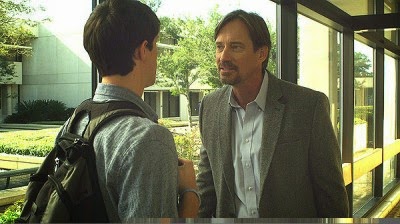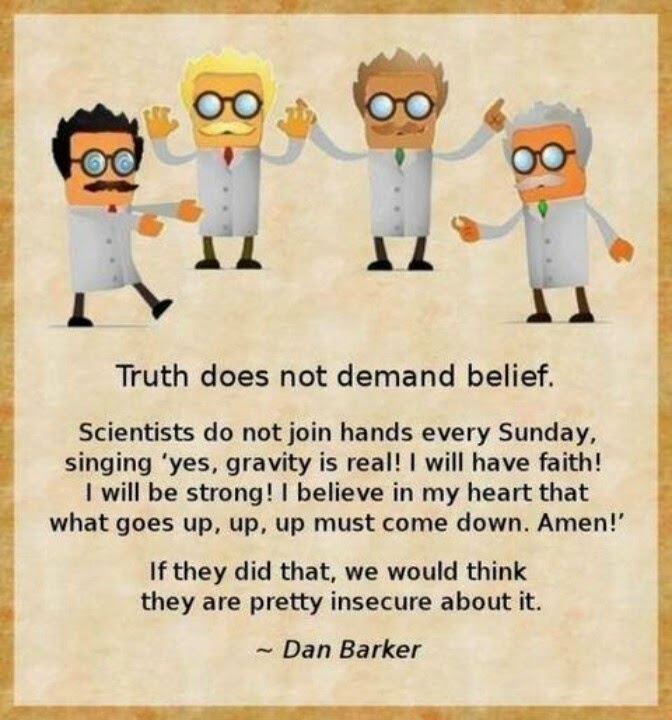“I Was Blind, Now I See”
John 9–10
LDS manual: here
Purpose
To encourage independent thinking, and to question the goodness of a god who allows suffering.
Reading
- Jesus heals a blind man on the Sabbath
- Discourse on sheep
Main ideas for this lesson
Why God allows affliction
It’s a classic question that religious people ponder: Why does God allow suffering?
Nice try, Jesus, but I’m not the omnipotent one here.
Ask: What answers have you given to the question of suffering?
One answer is the “Calvin’s Dad” answer: that adversity builds character.
For some kinds of suffering, this is true. I’m heading to the gym today, where I will suffer some discomfort, with the expectation that I will get swol. But this suffering is rather mild. For the suffering of, say, a parent whose child is swept from their very own arms during a tsunami (true second hand story), it’s arguable that there are better ways to build character, if that’s what god is trying to do.
Another answer is that there are consequences for our actions, and we should experience those consequences and learn from them. Again, very true if we’re talking about actions that I chose to do.
But what about suffering that arises not from our actions — or indeed, anyone’s actions? What about natural disasters (like our tsunami), which God could of course avert? What about diseases that arise? What about (say) polio, where people needed to be placed in devices so they could breathe? This isn’t a consequence of anyone’s actions, and it’s difficult to see how this debilitating condition has helped anyone to be stronger, in character or otherwise. Why does a god whose followers claim him to be loving and good allow this kind of suffering?
Stephen Fry elaborated on this theme, rather impressively off the cuff, I’d say.
Jesus has a rather surprising answer.
John 9:1 And as Jesus passed by, he saw a man which was blind from his birth.
9:2 And his disciples asked him, saying, Master, who did sin, this man, or his parents, that he was born blind?
The disciples think that this misfortune is God’s retribution for sin. Well, thank goodness Jesus is going to put that notion out of their heads, right?
9:3 Jesus answered, Neither hath this man sinned, nor his parents: but that the works of God should be made manifest in him.
WHAT
Think about that. For his entire life, this man has lived without sight, and for what? So he can sit there when Jesus comes along, get healed, and show everyone how great God is.
In other words, God apparently made him blind to prove a point. And in so doing, God creates entirely unnecessary suffering.
Is it really surprising that the people who best understood the Hebrew Bible found this unpersuasive?
Moreover, let’s us imagine that all of this is true. Is awe the most appropriate response to this kind of deity? Do you even feel safe in a universe run by such a being?
This is a universe in which the supreme being can withhold valuable information for centuries, and cause illnesses so that he can use them in order to reveal that which he could have revealed all along without using sentient beings as pawns.
The father and Jesus are like an arsonist and firefighter tag team. One sets the fire and the other takes it out. And we are all supposed to be impressed that someone can set fires and another can take it out.
Ask: How does Jesus heal the man?
Answer: He has magical saliva.
John 9:6 When he had thus spoken, he spat on the ground, and made clay of the spittle, and he anointed the eyes of the blind man with the clay,
9:7 And said unto him, Go, wash in the pool of Siloam, (which is by interpretation, Sent.) He went his way therefore, and washed, and came seeing.
This must have been a really miraculous event, because not only did it restore the man’s sight, it also somehow gave him the neural training that babies typically get in their first year or so to be able to process vision at all. Wow!
Except this is pretty bogus. If someone hasn’t trained their occipital lobe to interpret visual stimuli, then simply turning their eyes back on doesn’t help them see. It takes months. One man who had this happen was Shirl Jennings. Actually, Jennings had had his sight until age 3, at which time he went blind. Science restored his sight years later, but the resulting visual input was confusing for him. He didn’t mind when he went blind again soon after, mostly because then he didn’t have to watch the terrible movie based on his life starring Val Kilmer and Mira Sorvino. #tendermercies
The Gospel Doctrine teacher trapped inside me is telling me that the point of the story is that Jesus makes blind people see, both temporally and spiritually. But even Jesus quashes that notion. According to Jesus, he came to cause both sight and blindness.
John 9:39 And Jesus said, For judgment I am come into this world, that they which see not might see; and that they which see might be made blind.
As we’ve seen before, Jesus wants to conceal truth from some people — usually the unprepared or antagonistic. Wait, aren’t those the people who reject him? This is actually a rationale constructed to answer the question, “If Jesus is so true, why doesn’t everyone accept him?” Which I think is a great question, but Jesus’ answer is that they’re blind. Not because they’ve engaged in rational thought and decided to only accept ideas with evidentiary support. They’re just blind. To a Christian, there’s never a good reason to come to a different conclusion. If you don’t buy this jazz, it’s you who has the problem.
If I were to engage in some textual analysis, I’d suppose the latter blind group is the smarty-pantses of the world who think they know stuff, but don’t accept Jesus. I think we’re talking about Kevin Sorbo’s sneering professor character in God’s Not Dead.
Because the best way to stimulate students’ critical thinking is to browbeat them with your atheism. Works every time.
This could be seen as one more manifestation of the kind of anti-intellectualism that’s typical of Christianity.
Well, that’s enough bad movies for one lesson, but the rest of the story about the blind man is actually quite interesting in places, so have a read.
Sheep
Chapter 10 takes us to a discourse on sheep.
John 10:1 Verily, verily, I say unto you, He that entereth not by the door into the sheepfold, but climbeth up some other way, the same is a thief and a robber.
10:2 But he that entereth in by the door is the shepherd of the sheep.
And so on.
I have never liked the sheep metaphor. It’s supposed to be about caring for others, the shepherd laying down his life for the sheep. But sheep do not represent the best in us. Sheep are docile and stupid.
If those are the kinds of followers Jesus was after, then there are a lot of people like that, but I aspire to something a little smarter, a little more independent. Less ovine, is what I’m saying.
And then there’s the “other sheep” comment, which has spurred loads of speculation.
John 10:16 And other sheep I have, which are not of this fold: them also I must bring, and they shall hear my voice; and there shall be one fold, and one shepherd.
LDS doctrine says it’s ancient Americans, and Book of Mormon Jesus repeats this verse to them. Including the part about sheep, which in the absence of any actual sheep, would have made no sense to them. But more on that when we get to the Book of Mormon next year.
Additional lesson ideas
Testimony
The LDS manual encourages readers to share their testimony, using the formerly blind man as an example.
How did this man’s testimony grow as he continued to share it? (Compare verses 11, 17, 33, and 38.) How has your testimony grown as you have shared it?
There’s something sinister here. LDS leaders encourage people to “share their testimony” as a way of gaining a testimony.
Boyd Packer
It is not unusual to have a missionary say, “How can I bear testimony until I get one? How can I testify that God lives, that Jesus is the Christ, and that the gospel is true? If I do not have such a testimony, would that not be dishonest?”
Oh, if I could teach you this one principle. A testimony is to be found in the bearing of it!
Mormons enthusiastically promote this bad advice.
Dallin Oaks
Another way to seek a testimony seems astonishing when compared with the methods of obtaining other knowledge. We gain or strengthen a testimony by bearing it. Someone even suggested that some testimonies are better gained on the feet bearing them than on the knees praying for them.
In other words, saying you believe something has a curious tendency to make you believe that thing, since why would you say it unless you believe it? In other other words, Latter-day Saints are encouraged to lie to themselves and others, until they believe it. The message here is: Let the power of cognitive dissonance and peer pressure work for you! But it’s dishonest, and has no place in a thinking person’s toolkit for finding truth. What blamed fool thing couldn’t you convince yourself of using this method, if you tried hard enough?
One more time for this Dan Barker quote.
I have not really thought about evolution for a long time, and I still think it’s true. When something’s true, it doesn’t need to be continually pumped up like a leaky bike tyre.
Blasphemy review
Is anyone alarmed at the ease with which people pick up rocks to stone Jesus?
John 10:30 I and my Father are one.
10:31 Then the Jews took up stones again to stone him.
Stoning and summary execution is the kind of thing religious people do when they can get away with it. There’s a bit on blasphemy in this lesson (just search for blasphemy on the page, and I talk about it on the radio in this lesson.
Let’s finish with a closing hymn. This one seems appropriate: Morrissey, with “Yes, I Am Blind”. It’s even got sheep in it.







Recent Comments